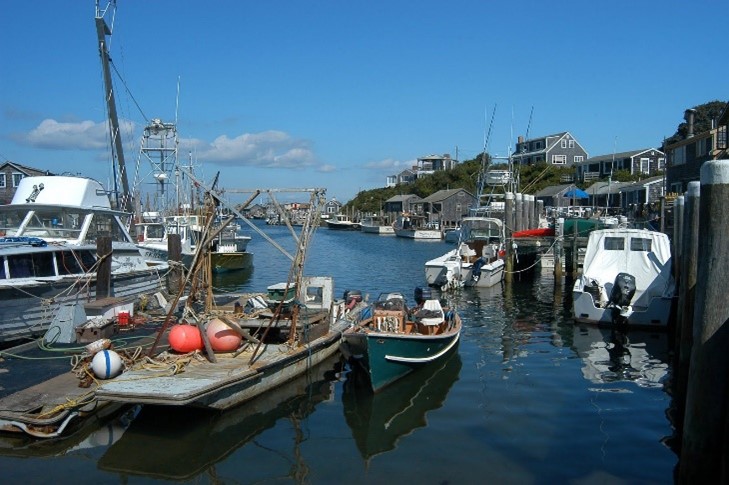Southerners have enjoyed shrimp and grits for generations, New Englanders have their clam chowder, Marylanders their crab cakes, and Cajuns their crawfish etouffee. Oysters Rockefeller is a century-old tradition, while calamari, sushi, and ceviche are more of an acquired taste, but growing in popularity.
Thankfully, all those fish no longer need worry about social justice, as the Biden Administration unveils its new initiative to “Integrate Principles of Equity and Environmental Justice in Federal Ocean Activities.” Whew! People who depend on the ocean for their livelihoods, and we who enjoy the fruits of their labors, have been worried about this for years. This was a delicate balancing act for any Administration, but the current leaders apparently have it figured out.
You see, the primary aim of the officials involved in this initiative is to mitigate climate change by putting a stop to commercial fishing. We can’t have fishing boats just roaming around out there willy-nilly while burning marine fuel. Limiting their catch might help preserve the future of the fisheries and their species, but it doesn’t do anything about carbon dioxide in the atmosphere. These boats must be banished from the brine, and the communities they hail from transitioned to some greener industry. But there is a problem with that, and thus the need for balance.

Namely, some of the commercial fishermen and communities that will suffer from such a ban are minorities. Or as the White House press release puts it, “because of historic injustices and underinvestment some communities are hit harder by devastating climate change impacts.” According to the accompanying report, that means “Ocean communities with a significant proportion of people who are Black, Latino, Indigenous and Native American, Asian American, Native Hawaiian, or Pacific Islander,” as well as people who are poor, or “communities with a significant proportion of people who experience persistent poverty or other forms of social inequality.”
Does that mean the government plans to banish white or middle-class fishermen and give permits only to minorities and the poor? Well, no. It hints instead at a distribution of funding to “transitional” communities, heavily weighted toward minority communities. The entire premise is disingenuous, because the only impacts these communities have suffered from anything related to climate change is from government regulations killing the industries they depend upon. And when you get into the details of the report upon which this announcement was based, it has an array of general statements about the “environmental justice” problem, but a series of proposed solutions that have nothing to do with that.
Shutting down economic activity they depend upon can hardly be seen as progress by such communities, obviously. But in describing the “ocean justice” initiative to the UN climate summit, White House Council for Environmental Quality Chair Brenda Mallory said the purpose was “to advance environmental justice” for communities that rely on the ocean and Great Lakes. What exactly is being “advanced?”
The government agrees with commercial fishing groups that offshore wind turbines and transmission lines could disrupt marine ecosystems. So, no more wind machines? Wrong again. The Administration is still pushing for massive offshore wind facilities, not only along the entire East Coast, but California, too. And the White House says that will “improve the well-being of people in communities connected to the ocean.” How will it accomplish that if those communities are to be disconnected from their livelihood because of it?
The White House report acknowledges that “many communities that live near the ocean, depend on marine resources, or are part of the ocean economy face unique circumstances that exacerbate their existing challenges and prevent equitable access to the benefits the ocean provides.” Benefits officials now propose to deny these communities by restricting fishing. So, if it isn’t really about social justice, what exactly does the report propose?
Here is the action plan: Massive federal funding ($463.3 billion), 40 percent of which will be paid to “disadvantaged communities;” Massive (45 gigawatts) new offshore wind capacity; “Conservation” of at least 30 percent of U.S. waters, locking them up from commercial activity; “nature-based solutions” (unnamed but not fishing) to address climate change and “support” local communities; and zero greenhouse gas emissions by 2050, including banning gas-powered boat motors.
No wonder a community spokeswoman says the strategy “ignores the critical connection between seafood production and marginalized populations” and “totally fails to recognize that the fishing industry is an extremely important source of employment and cultural heritage” in the same communities these “environmental justice” policies pretend to help.
These communities apparently do not appreciate all this activity on their behalf. Nor do the fish, who don’t appear to care about all this activity on their behalf. Do fish even understand the importance of the demographics of the person on the other end of the hook?




Comments on this entry are closed.